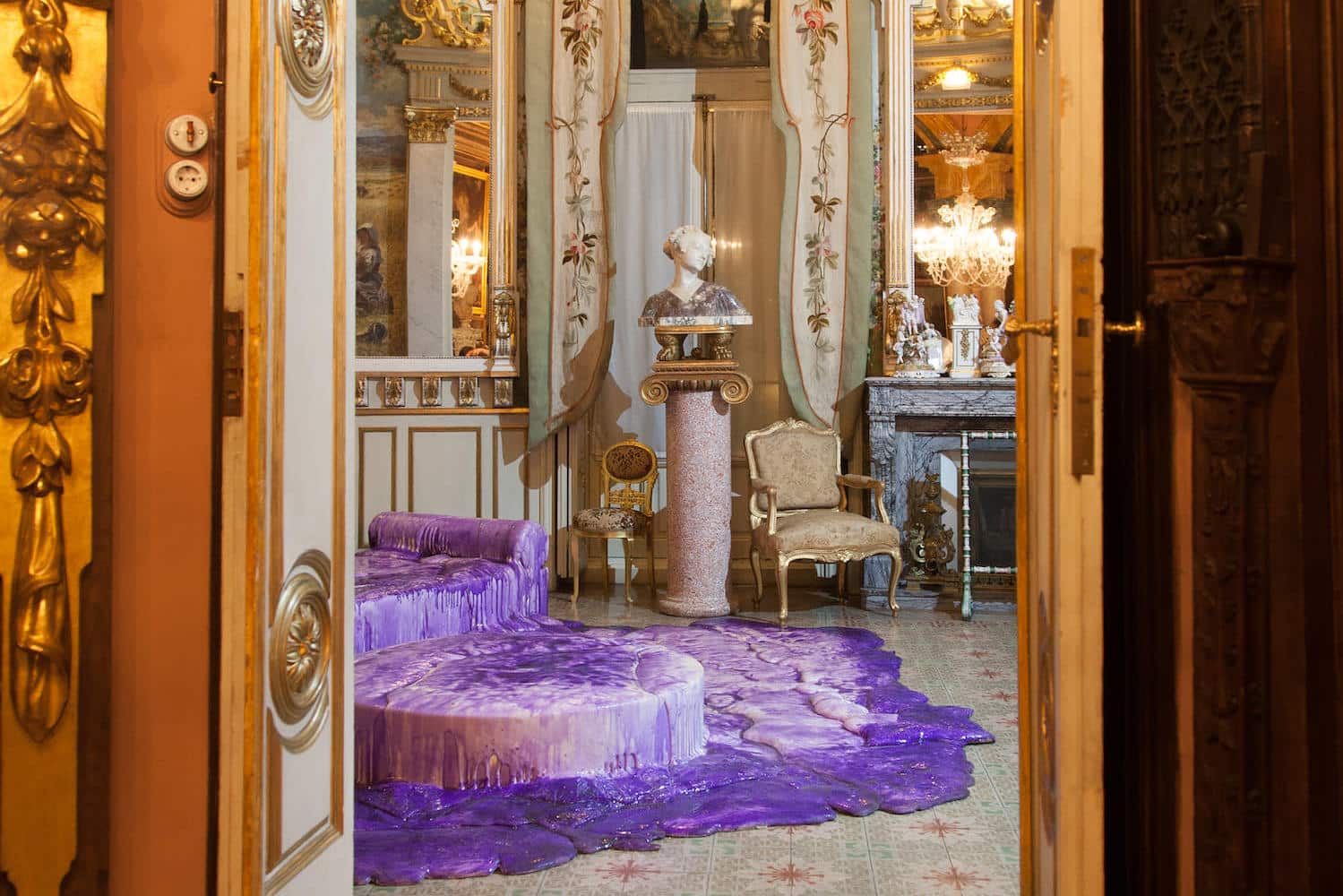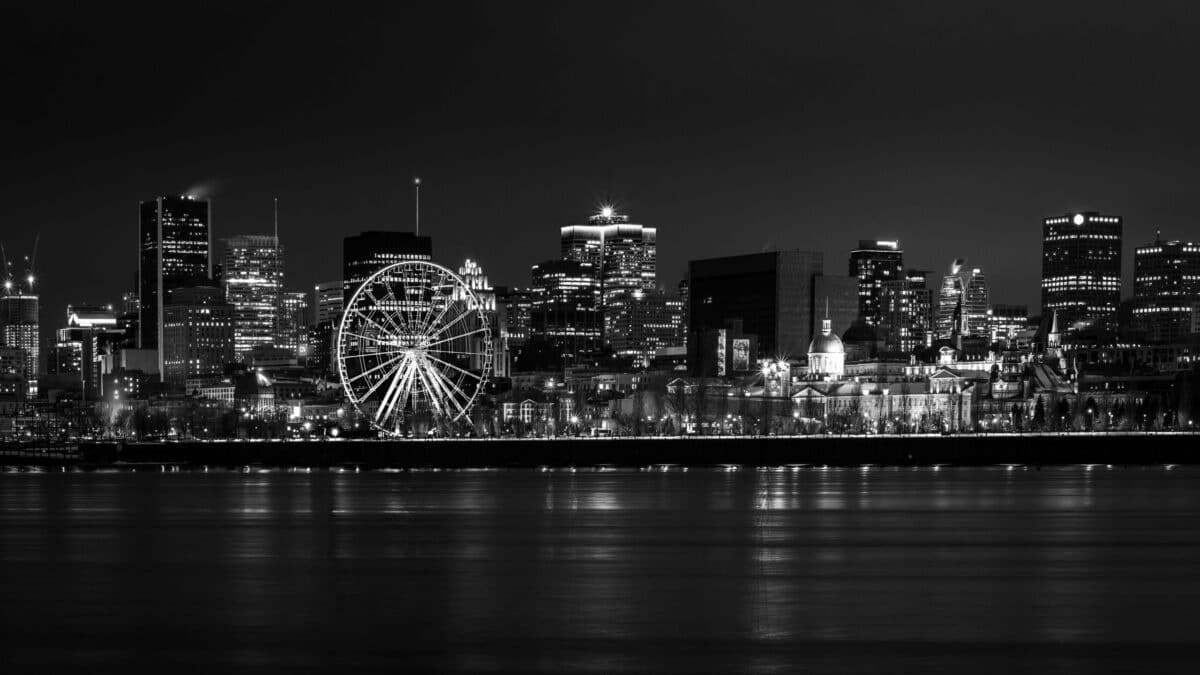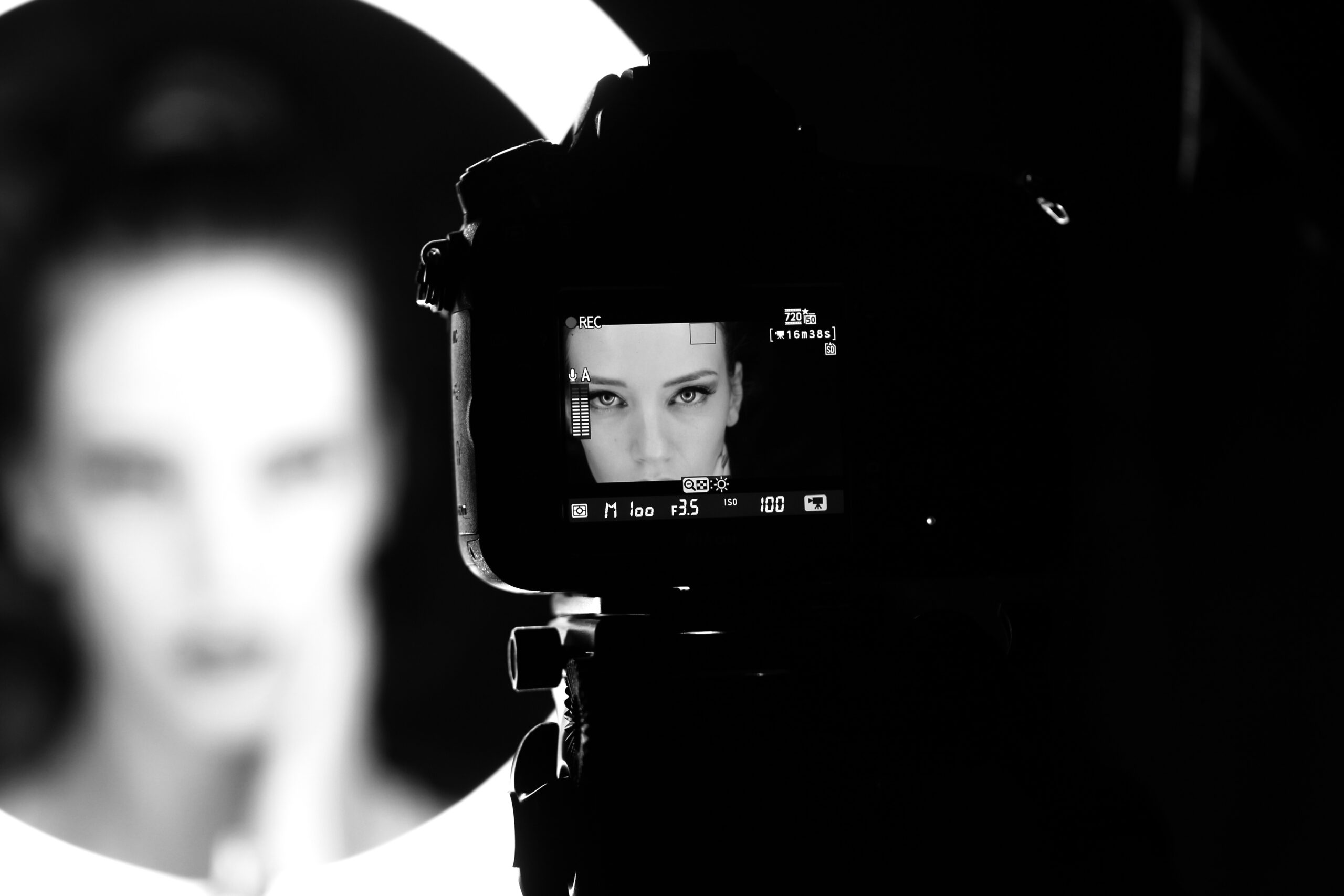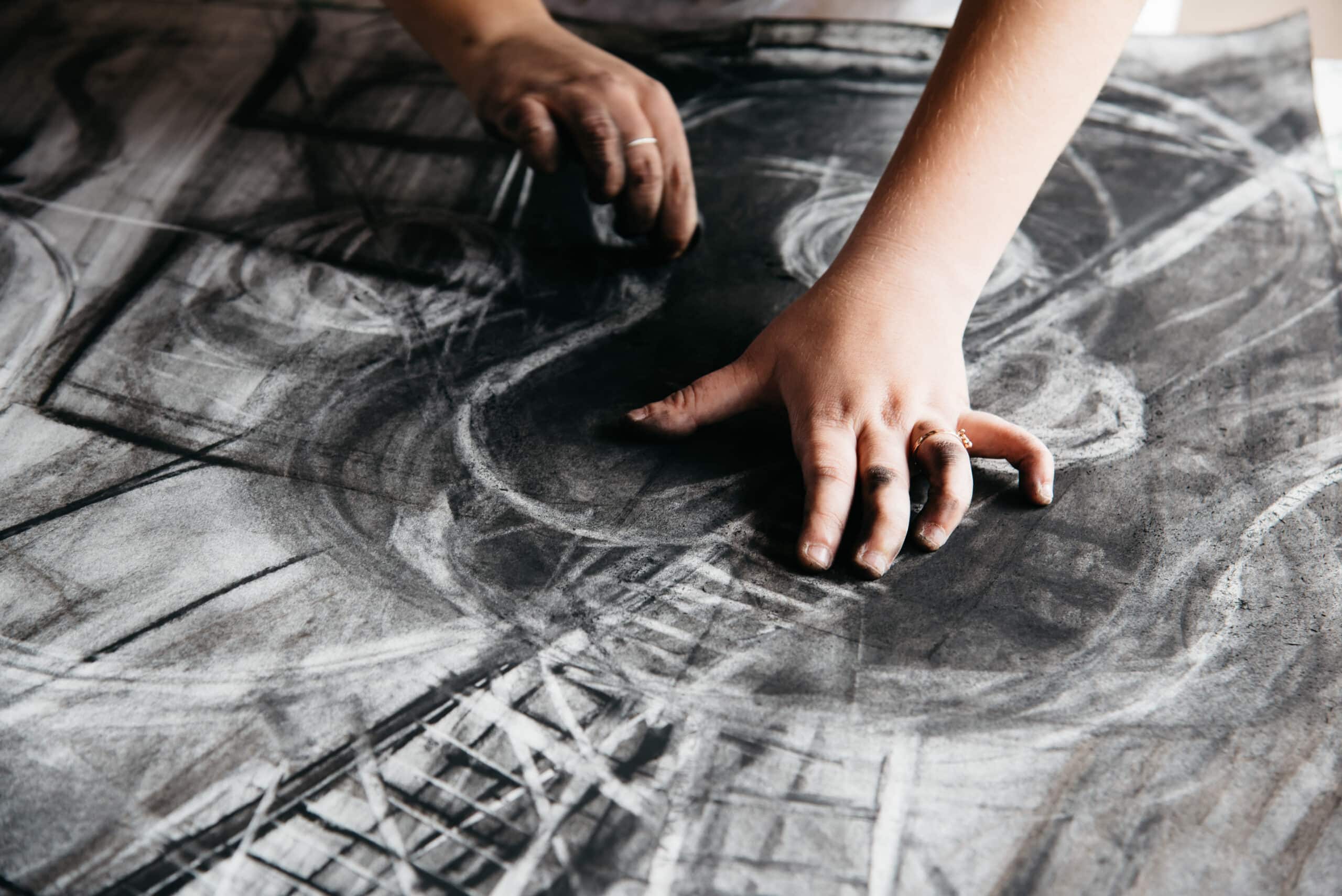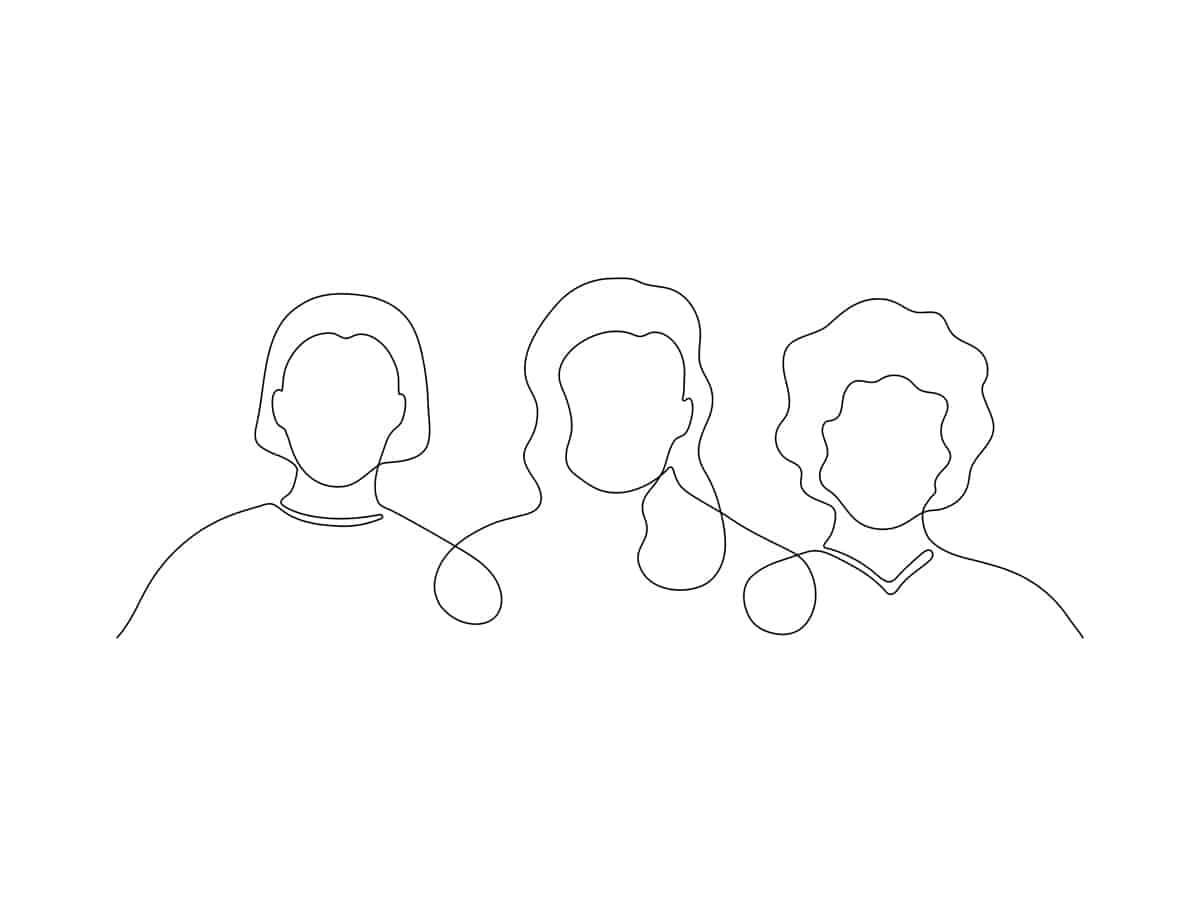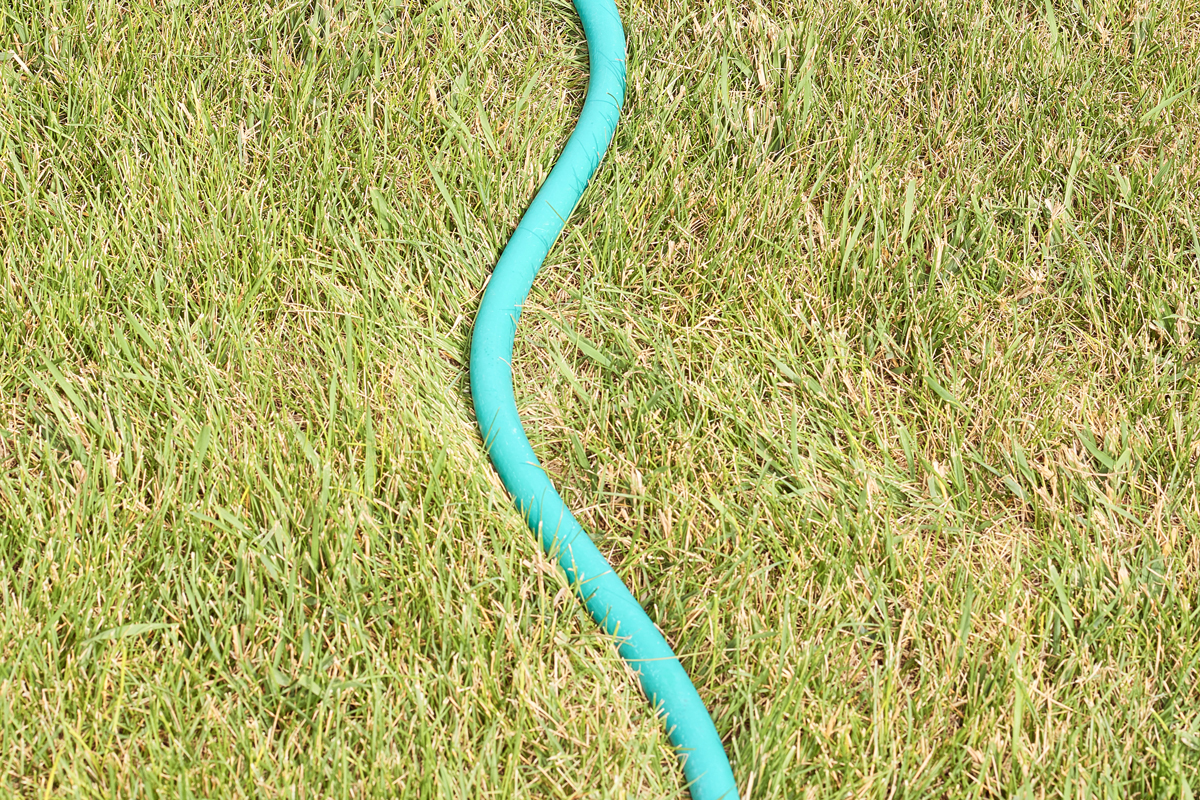Madrid fühlt sich an wie New York, nur ohne die Hektik. Das Madrid Design Festival passt zu diesem Gefühl mit wunderschön kuratierten Ausstellungen, die die Besucher dazu ermutigen, langsamer zu werden und sich wirklich Zeit zu nehmen, um den Einfluss von Design auf die Welt um uns herum zu erfassen.
In seinem zweiten Jahr präsentiert das Festival über 250 Veranstaltungen, Ausstellungen und Installationen, an denen sowohl erfahrene als auch aufstrebende Designer aus verschiedenen Bereichen teilnehmen.
Format hatte die Gelegenheit, das Festival zu besuchen - hier sind die Highlights einiger der besten Designs, die Spanien zu bieten hat.
Guillermo Santomà im Museo Cerralbo
Das Museo Cerralbo - die ehemalige Residenz von Enrique de Aguilera y Gamboa, dem 17. Marquis von Cerralbo - beherbergt eine überwältigende Sammlung von Antiquitäten. Du könntest Tage damit verbringen, das Haus zu erkunden und würdest immer noch Schätze unentdeckt lassen. Der Marquis überließ seinen Palast (und den gesamten Inhalt) dem Staat, was die Opulenz des spanischen Adels im neunzehnten Jahrhundert perfekt widerspiegelt. Zu sagen, dass ich mich in meinen Chuck Taylors im Ballsaal underdressed fühlte, wäre eine Untertreibung.
Für das Festival hat der spanische Architekt und Designer Guillermo Santomà integrierte im ganzen Museum hochkarätige Skulpturen aus verschiedenen Materialien und in unterschiedlichen Größen. Die Stücke überraschten und erfreuten die Besucher und entlockten selbst Madrider Designgrößen wie Rosanna Orlandi und ihr Gefolge. (Stell dir Edna aus Die Unglaublichen vor - aber mach sie Design.)
Ein Schlüsselelement von Santomàs Arbeit ist die Verschmelzung der ständigen Kollektion mit seinen neuen Stücken, wodurch die Konzepte von Zeit und Raum verschwimmen. "Wir sind Teil dieser historischen Linie, wir haben eine Vergangenheit und wir können sie fortsetzen", sagt er. "Ich habe Schwierigkeiten, jedes Stück einzeln zu verstehen. Alle Stücke sind ein und dasselbe Stück, der Körper, an dem ich wirklich arbeite, ist die Beziehung von einem Stück zum anderen."
Einige von Santomàs Stücken, wie WandteppichSie fügen sich fast nahtlos in die ständige Sammlung des Museums ein.
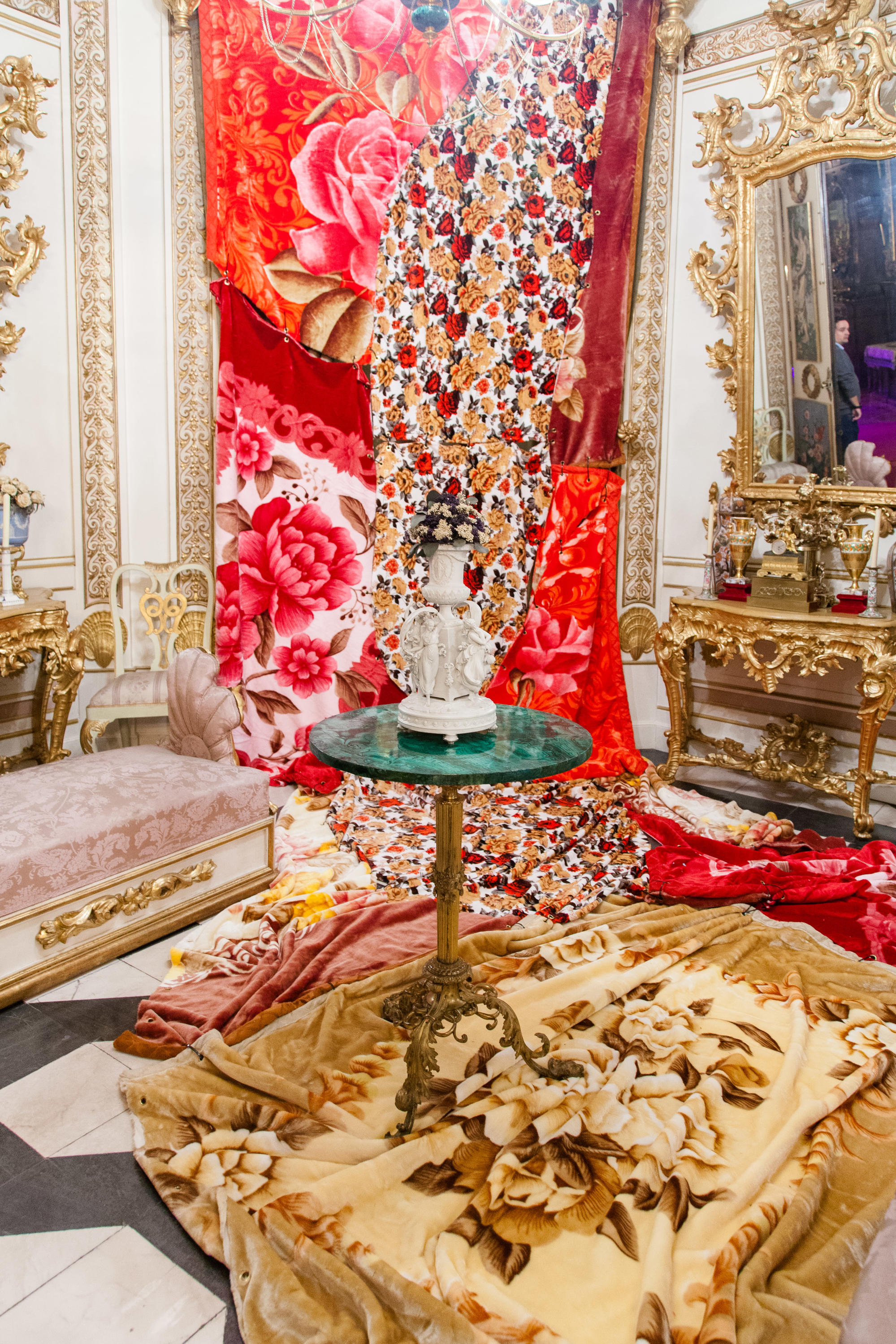
Andere Stücke fallen auf und regen die Besucher dazu an, sich die weitere Nutzung des Raums vorzustellen, wie zum Beispiel Disco im Ballsaal des Palastes oder Esstisch im Bankettsaal. Ich ertappte mich dabei, wie ich davon träumte, eine Party in diesen Räumen zu feiern - von der exklusiven Gästeliste bis zum schicken Menü.
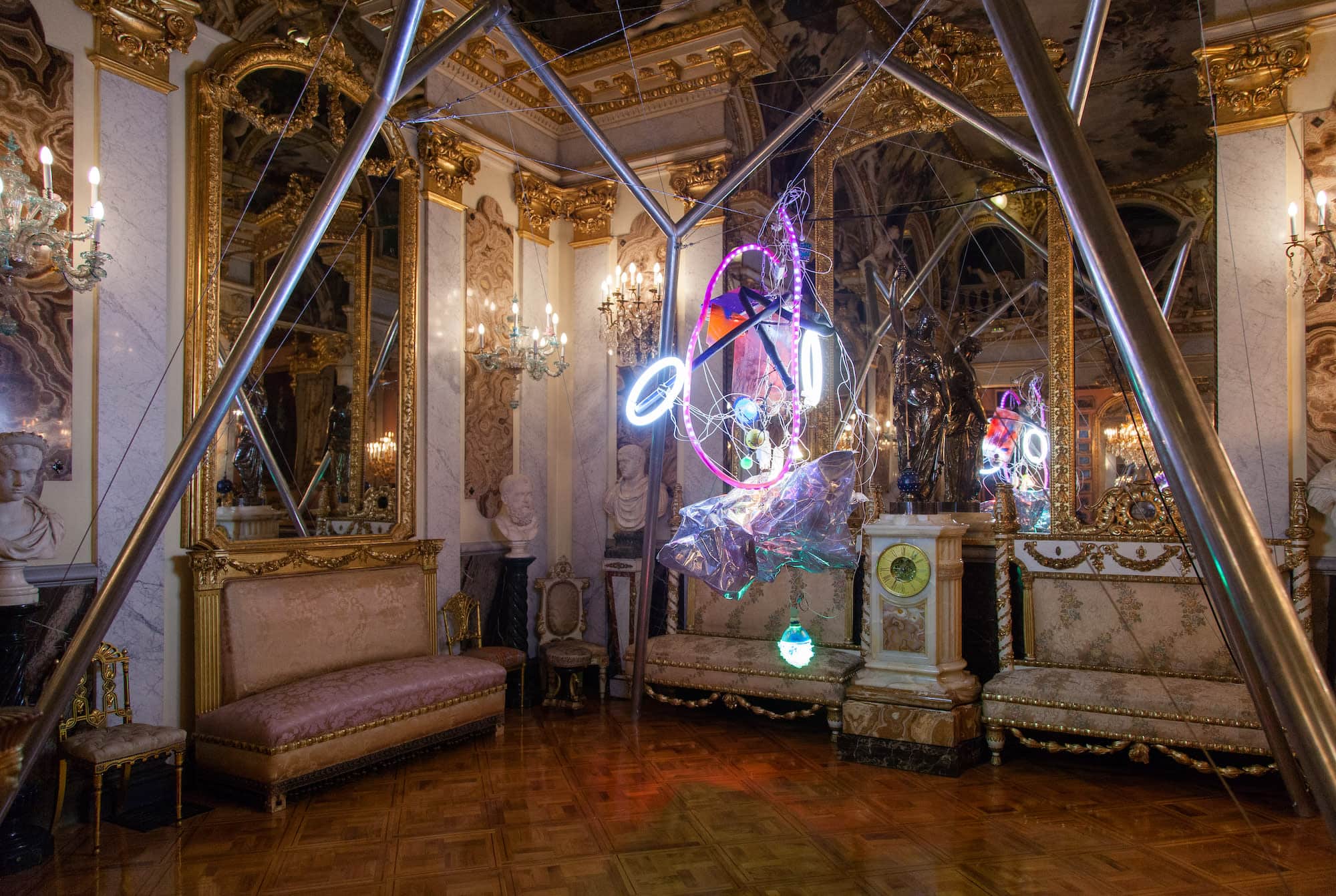
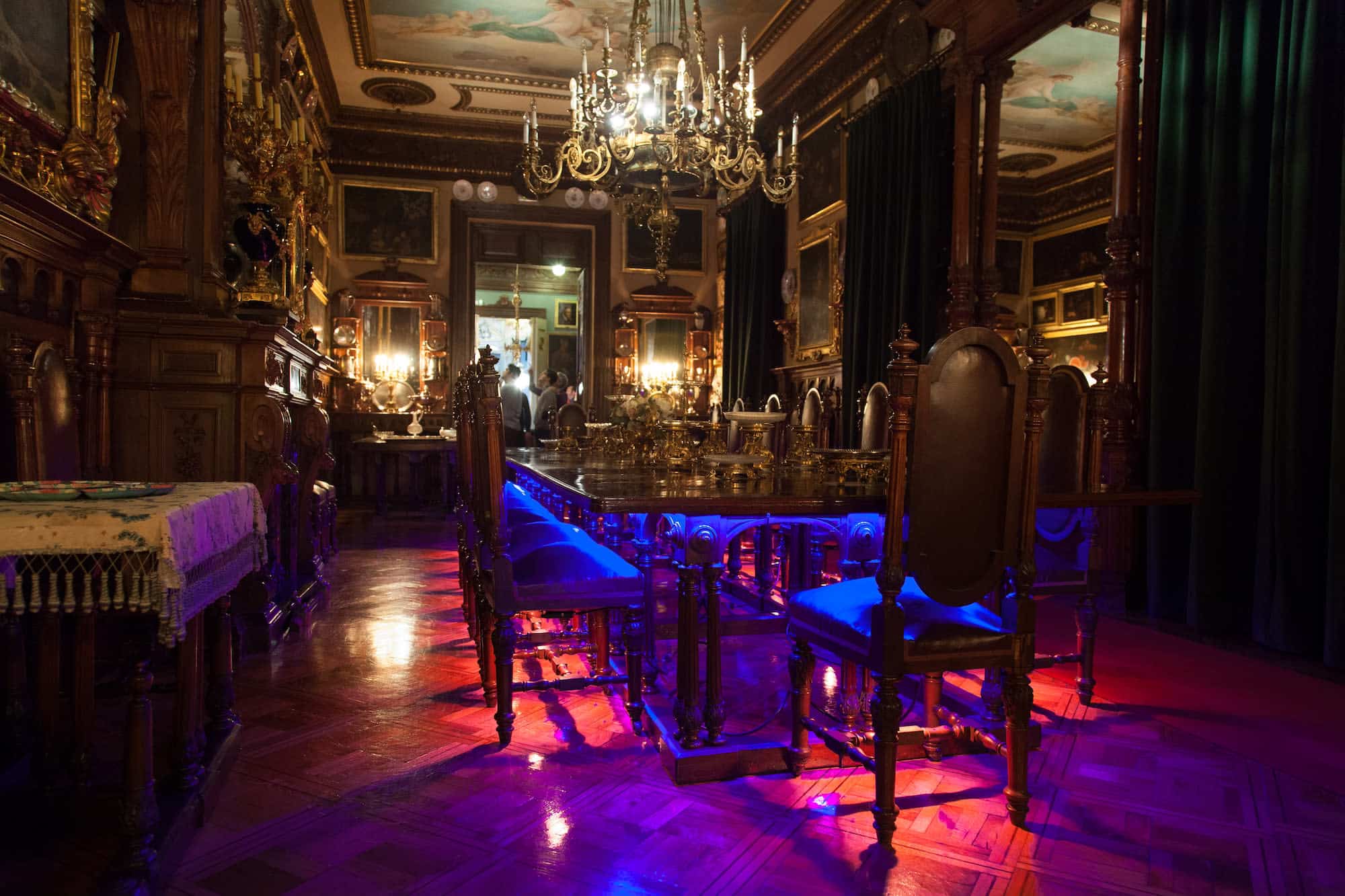
Aufsehen erregende Stücke wie Miami Couch stehen in starkem Kontrast zu der nüchternen barocken Kulisse und verleiten die Besucher dazu, den matschigen, lila Schleim zu berühren (sehr zum Leidwesen der wachsamen Museumswächter).
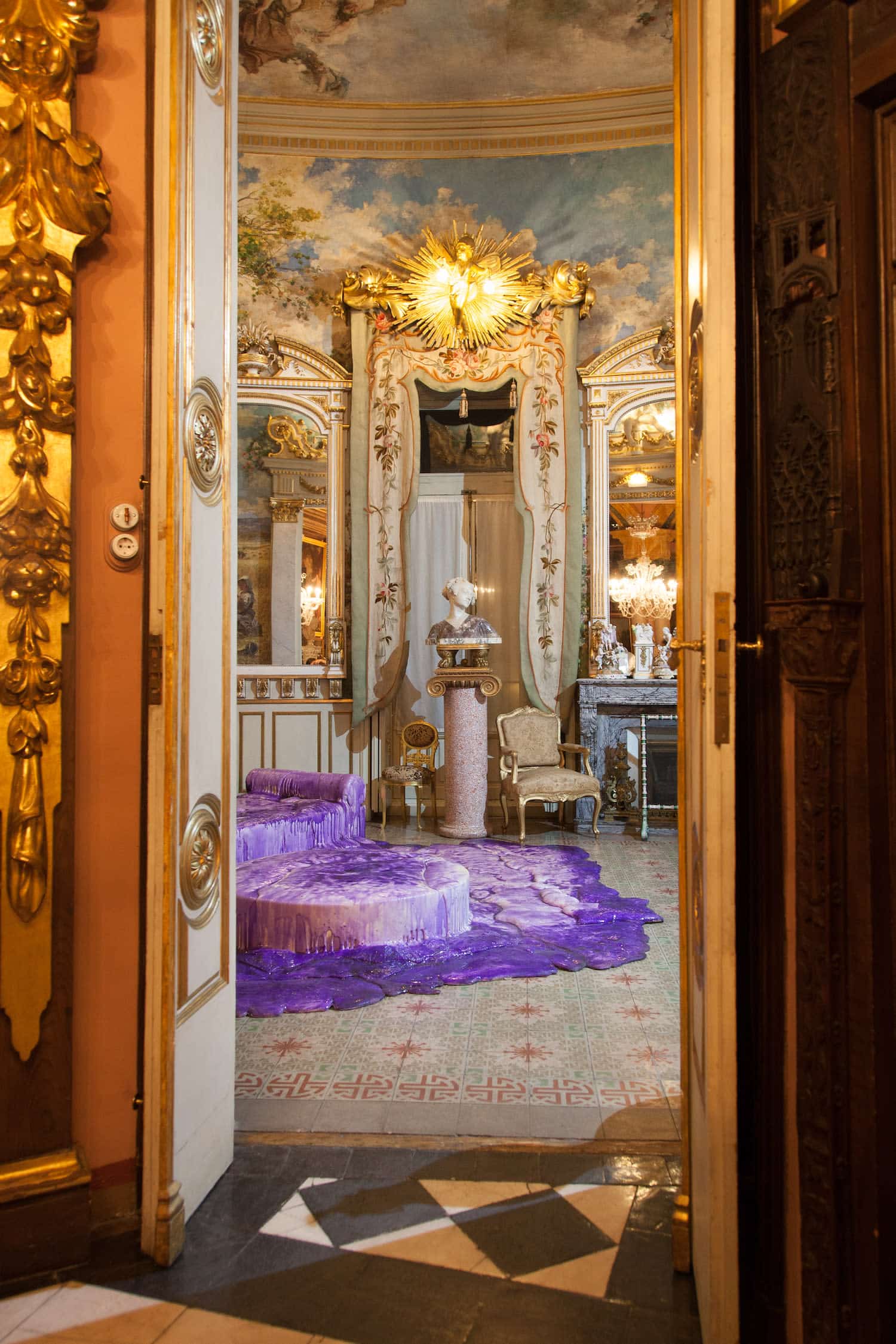
Darro: Design & Kunst
Das von Paco Muñoz gegründete Designbüro Darro brachte in den 1950er Jahren die modernistische Bewegung nach Spanien, obwohl der größte Teil des Landes nach dem Bürgerkrieg noch einer eher traditionalistischen Ästhetik treu war.
Leider musste Darro 1979 seine Türen schließen, weil die Produktion zu teuer war und die Kunden ausblieben. Abgesehen von der traditionellen Oberschicht hatten nur sehr wenige Menschen das Geld, um Möbel zu kaufen; sie wurden von Generation zu Generation weitergegeben, so dass die traditionelle Ästhetik eher aus der Not heraus als aus persönlicher Vorliebe am Leben erhalten wurde.
Designer Pedro Feduchi hat 60 Stücke zusammengestellt, die zeigen, wie die Firma das Industriedesign revolutioniert hat, indem sie die Modernität im Innen- und Industriedesign während der Franco-Ära gesucht und gefördert hat. Ursprünglich fand er nur 10 Stücke, also wurde die Suche auf Freunde, Familie und Vintage-Märkte ausgeweitet, wobei alte Schwarz-Weiß-Kataloge als Referenz dienten, um die Sammlung schließlich auf über 100 Stücke zu erweitern.
Die Ausstellung zeigt, wie Darro versucht hat, den Menschen die Moderne zu bringen. Der Laden des Unternehmens diente als Vorzeigeladen, Kunstgalerie und Designzentrum. Der Laden führte auch Artikel von nordischen und italienischen Designern, die anderswo nur schwer oder gar nicht zu finden waren. Die importierten Artikel beschränkten sich auf kleinere Haushaltswaren, da die Einfuhr von Möbeln unter der Franco-Regierung verboten war.
Die Auswirkungen des Bürgerkriegs und der darauf folgenden Diktatur auf das spanische Design können nicht unterschätzt werden. Darro war auf seine eigene Art und Weise eine Rebellion gegen Franco und alles, wofür sein Regime stand.
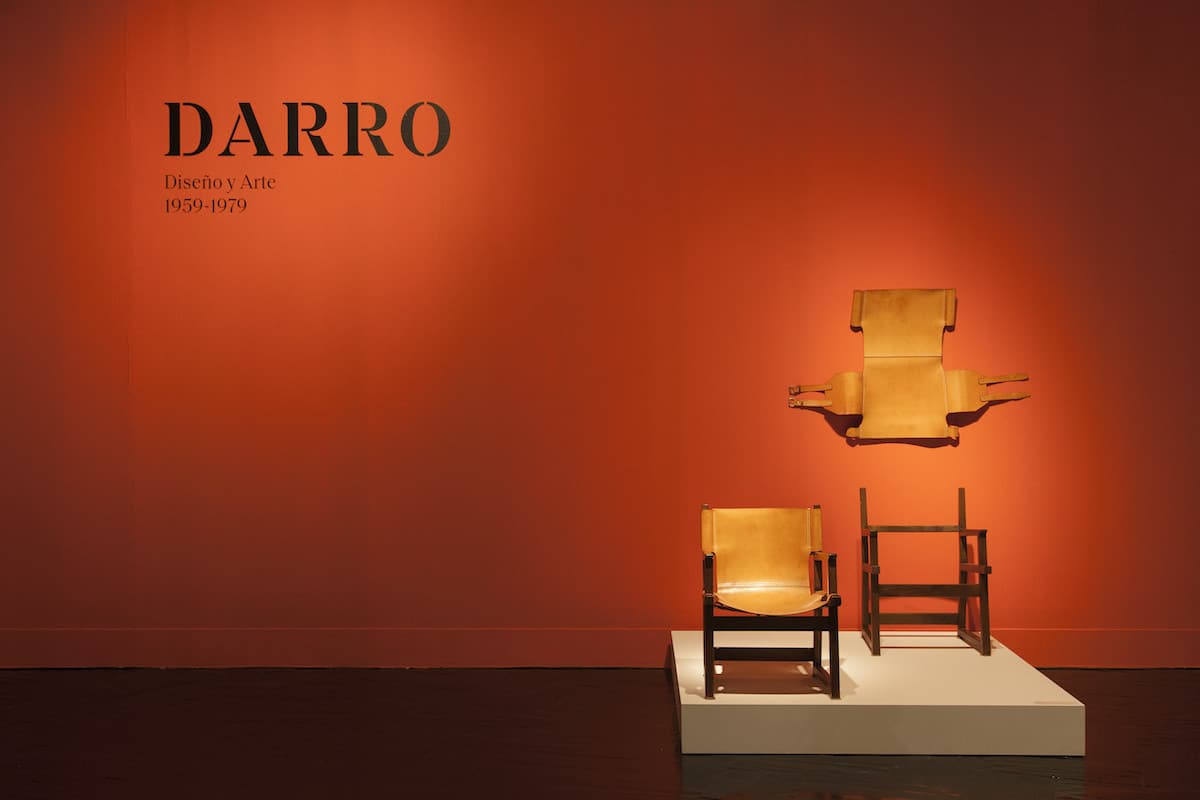
Die Kollektion umfasst viele Exemplare des kultigen Riaza-Stuhls von Darro, der aus Walnussholz und kostbarem Leder gefertigt ist.
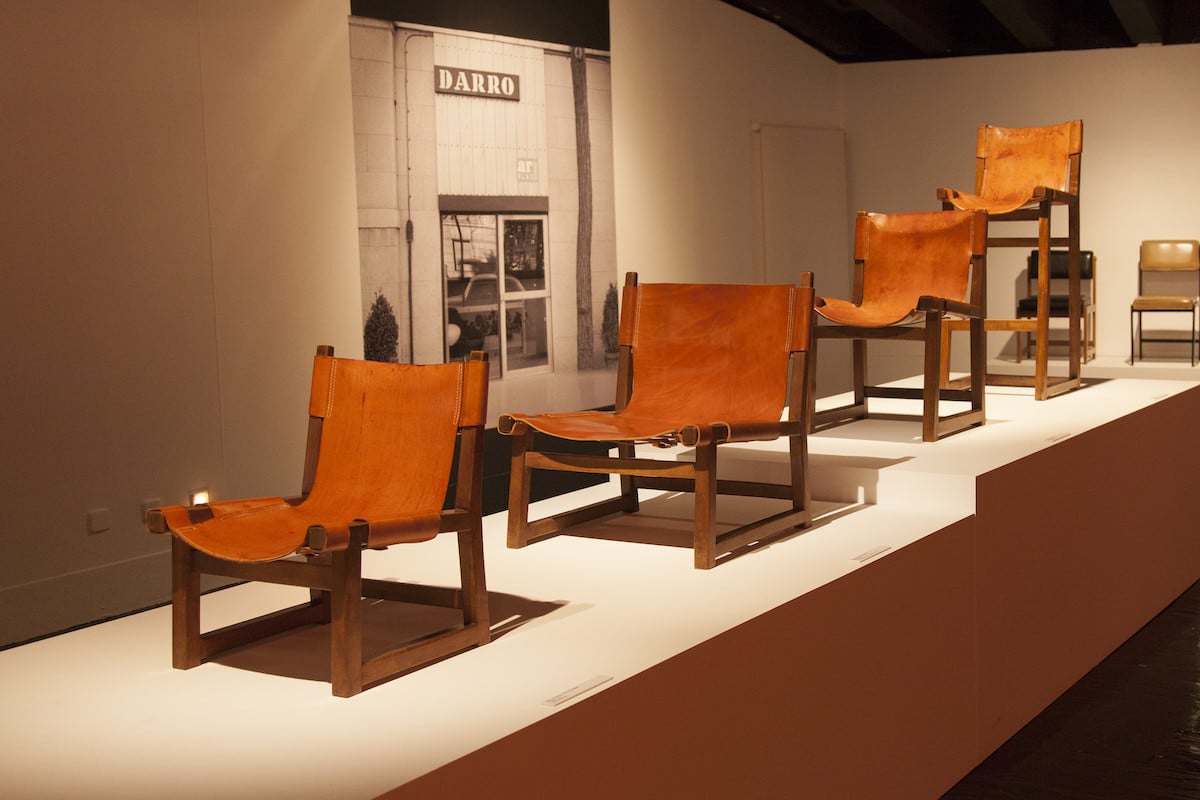
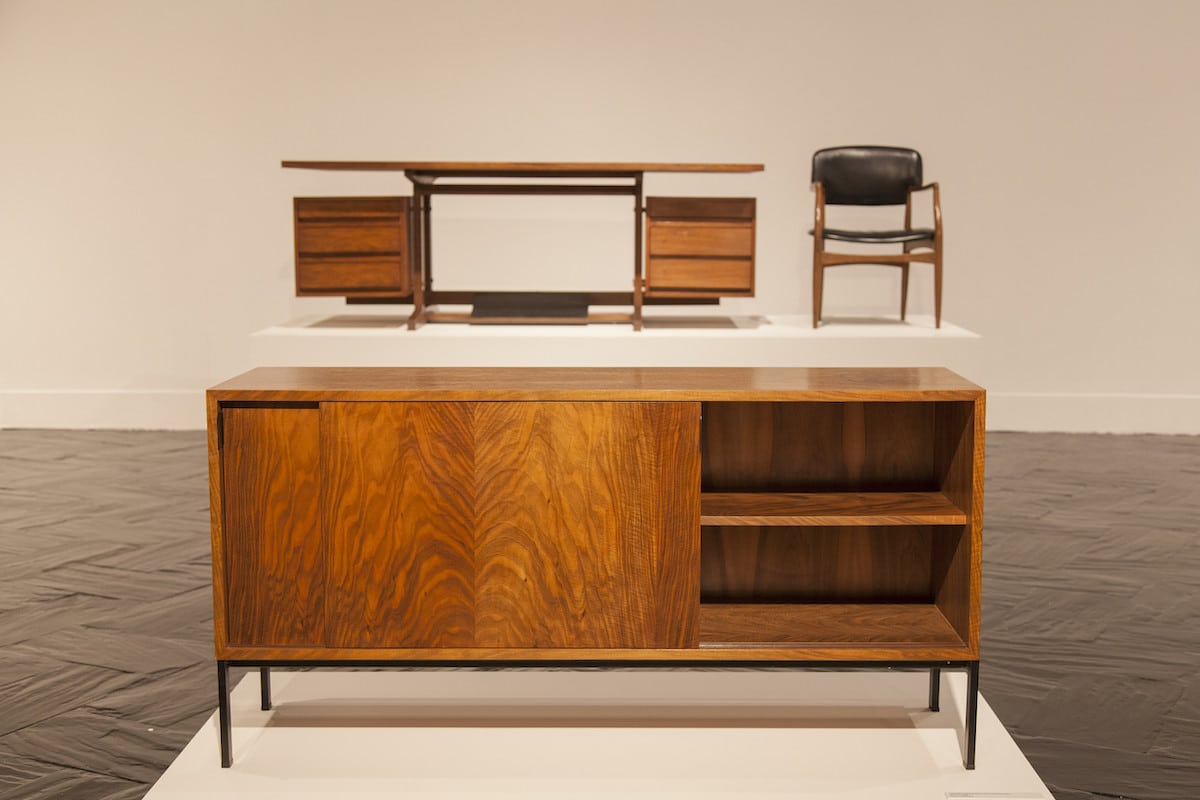
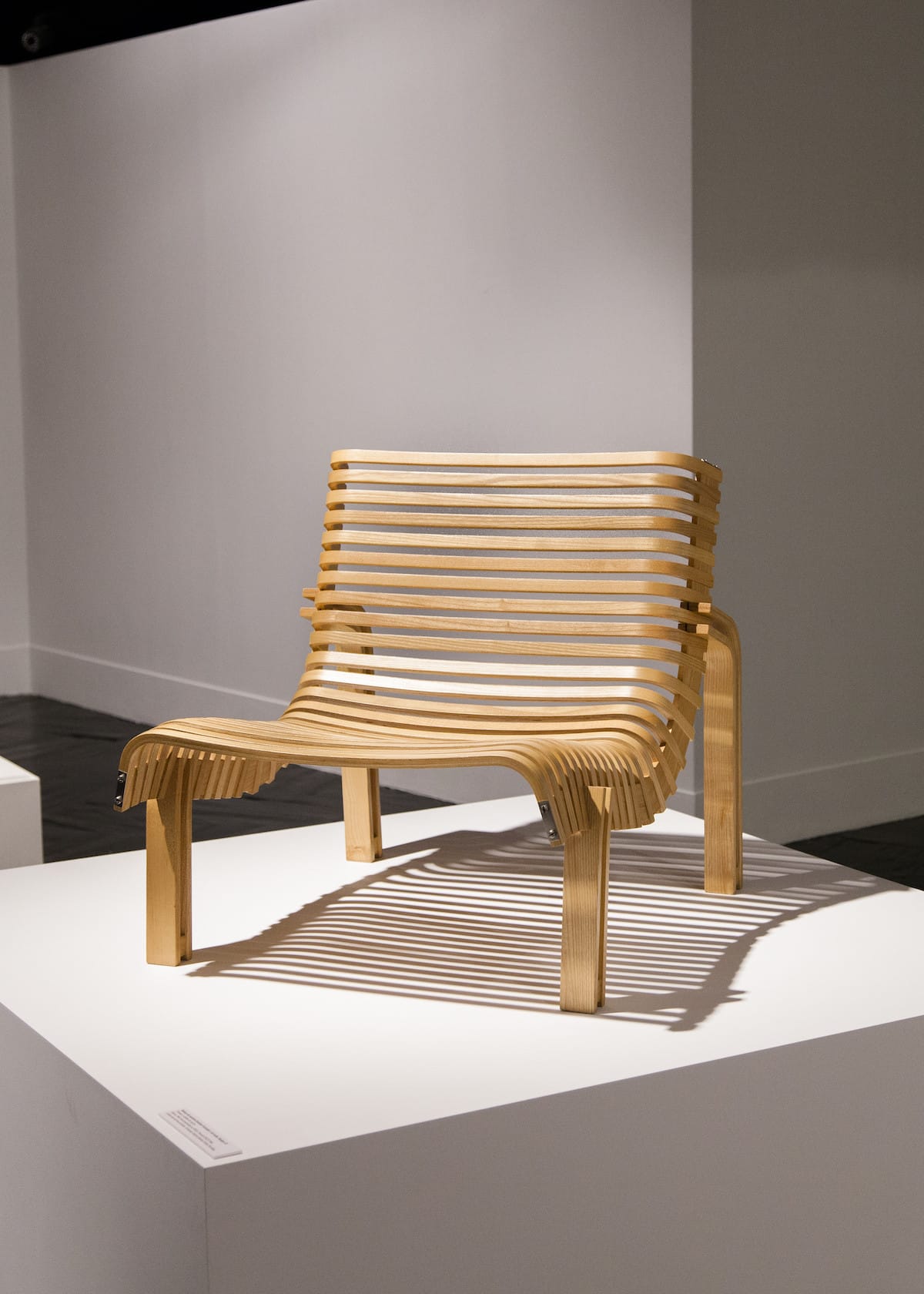
Super-Verpackung: Design im Dienste des Designs
Kuratiert von Ana Domínguez Siemens, José María Faerna, und La Fábrica, Super-Verpackung stellt Produktdesign in den Mittelpunkt einer Ausstellung, die die vertraute Form eines Supermarktes hat. Mit skurrilen Produkten, die derzeit in den Regalen zu finden sind, und Verpackungen von 12 spanischen Designbüros zeigt die Ausstellung den Einfluss von Design auf unser tägliches Leben.
Als ich durch die fröhlichen und hell erleuchteten Gänge schlenderte, wurde ich daran erinnert, wie Design fast jeden Aspekt meines eigenen Lebens berührt. Diese Ausstellung war für mich diejenige, die am zugänglichsten für alle Publikum und zeigt den Besuchern, dass Design wirklich überall ist. Design und Kunst zu feiern ist extrem wichtig, aber ich würde behaupten, dass es genauso wichtig - wenn nicht sogar noch wichtiger - ist, die Verbindung herzustellen und zu zeigen, welchen Einfluss sie auf die Welt um uns herum haben.

Super-Verpackung untersucht auch die Idee, dass Design dem Design dient: Wie wahrscheinlich ist es, dass wir ein Produkt ohne verlockendes Verpackungs- und Grafikdesign in die Hand nehmen und in den Einkaufswagen legen? Wenn du das nächste Mal einkaufen gehst, nimm dir etwas Zeit und schau dir das Produktdesign genau an. Wie viel von deiner Vorliebe für Coke gegenüber Pepsi hängt mit dem Design zusammen?

Die Ausstellung zeigt aktuelle Beispiele des Produktdesigns sowie die Geschichte der Verpackung im Zusammenhang mit dem Supermarkt - anhand der Entwicklung der legendären Colaflasche, alter und aktueller Aerosoldosen und Tetrapacks.

Die Erkundung der Zukunft des Produktdesigns konzentriert sich auf umweltfreundliche Ideen wie Ooho! water pods und Biokunststoffe aus organischen Abfällen.
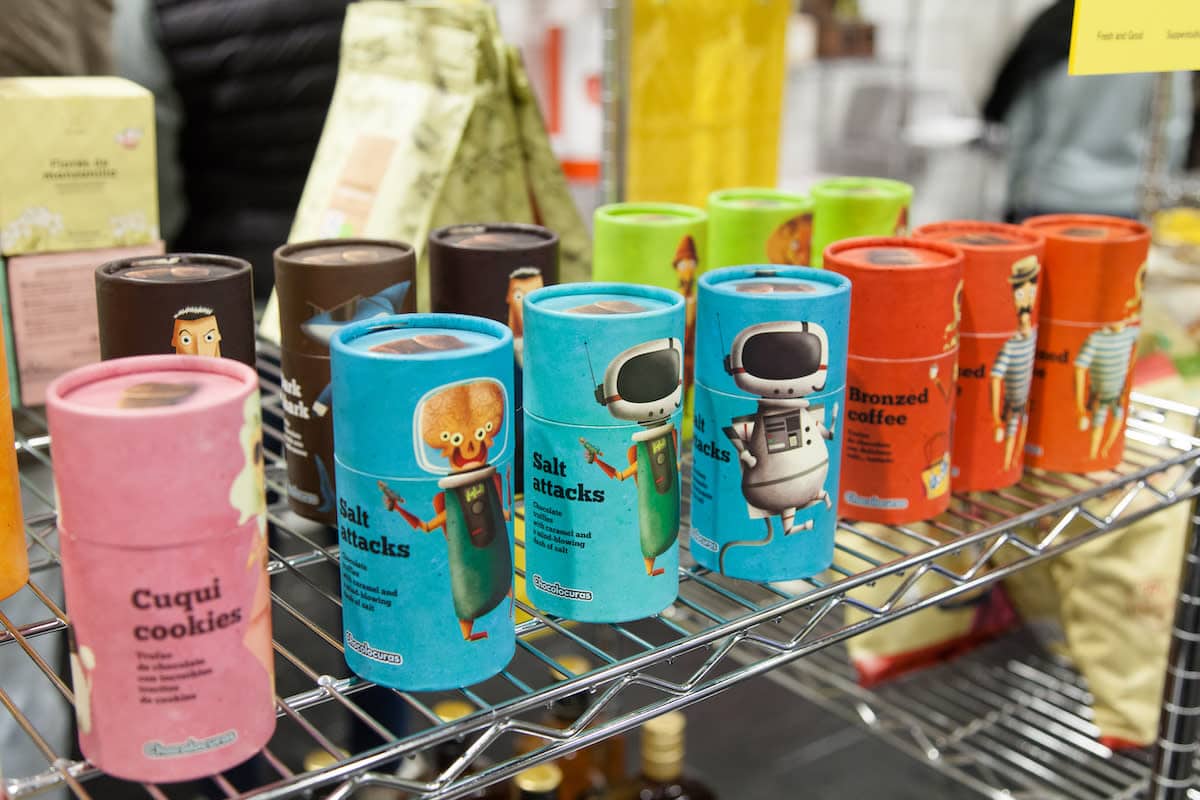
Cuidado Diseño: Zeitgenössisches spanisches Kunsthandwerk
Der Schritt von Super-Verpackungden hellen, farbenfrohen Raum in die fast ehrfürchtigen schwarzen Wände des Cuidado Diseñowurde es still um unsere Gruppe. Die Ausstellung, die die Idee des traditionellen spanischen Handwerks durch einen zeitgenössischen Diskurs untersuchte, erinnerte an eine religiöse Erfahrung, als ob wir die Kirche des Handwerks besuchen würden.
Jedes der 117 ausgestellten Stücke musste sechs Kriterien erfüllen: Kultur, Erbe, Exzellenz, Beherrschung des Handwerks, Kreativität und eine starke Beziehung zwischen dem Schöpfer und dem Besitzer des Objekts. Diese Gebote führten zu atemberaubenden Arbeiten, die aus Materialien wie Textilien, Glas, Holz, Keramik, Edelmetallen und sogar Korbwaren bestehen.
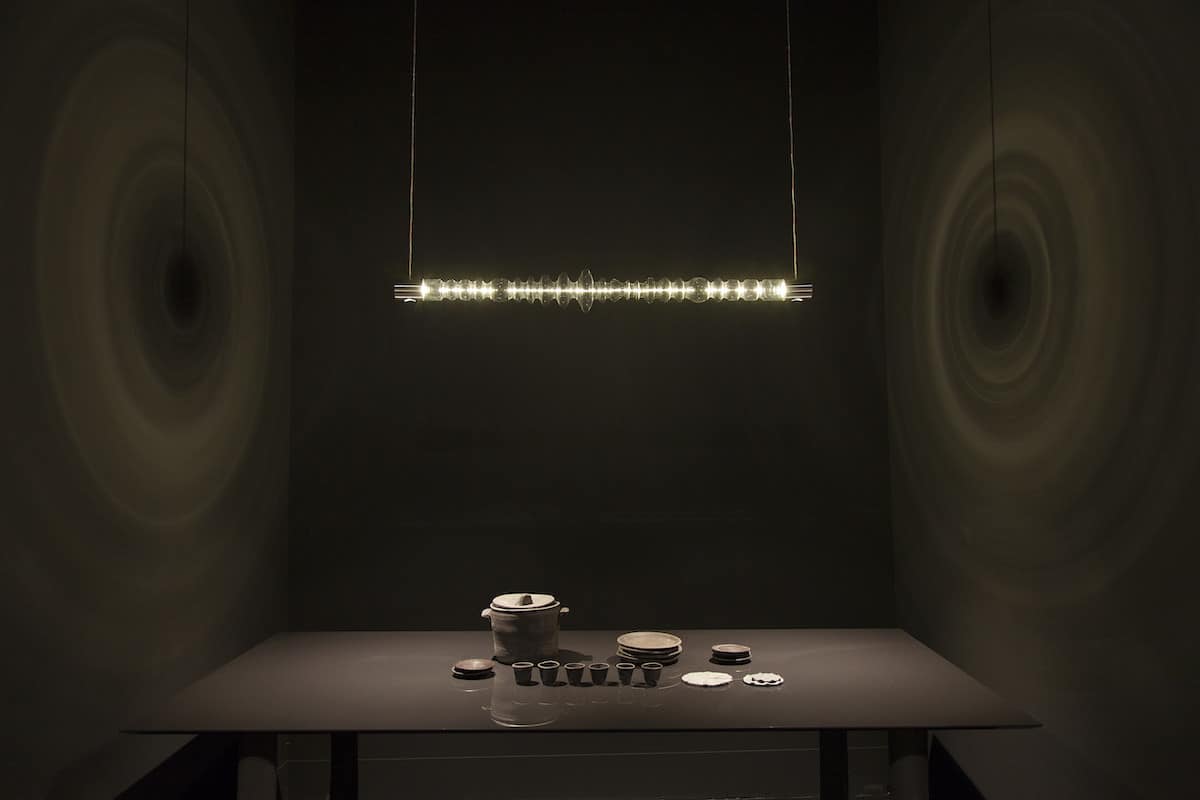
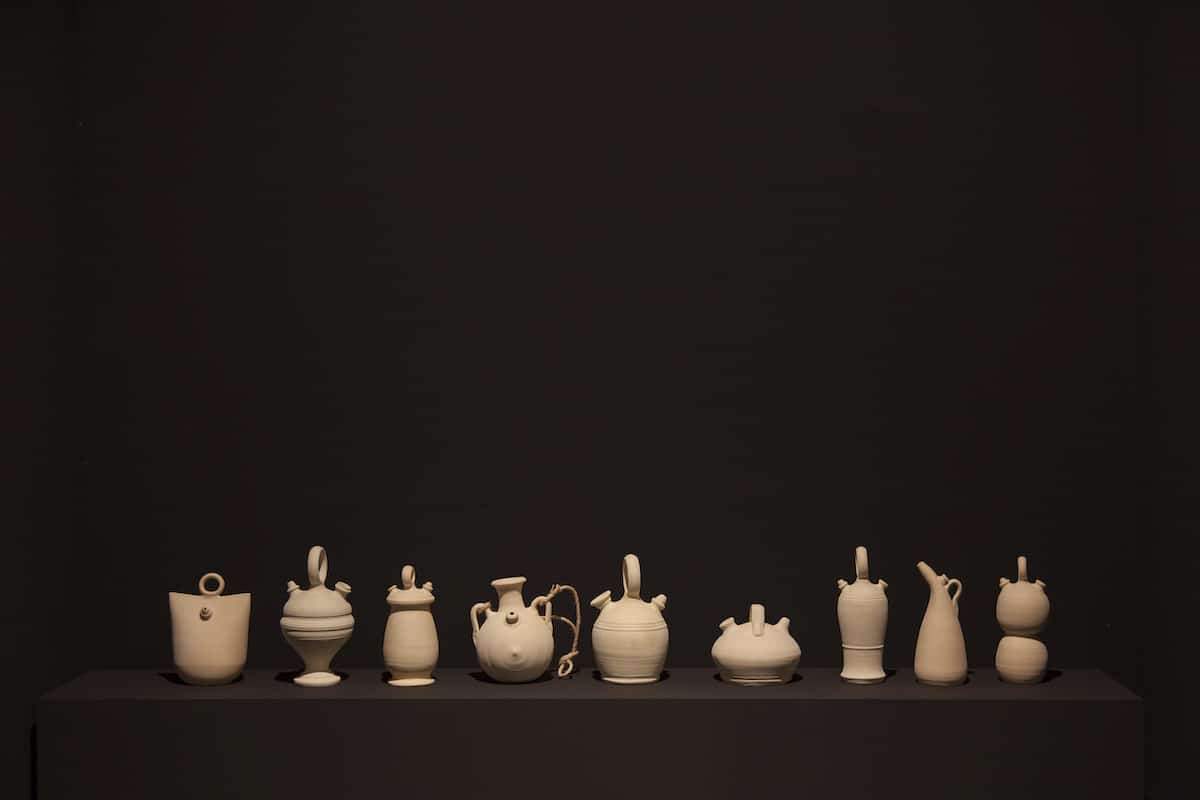
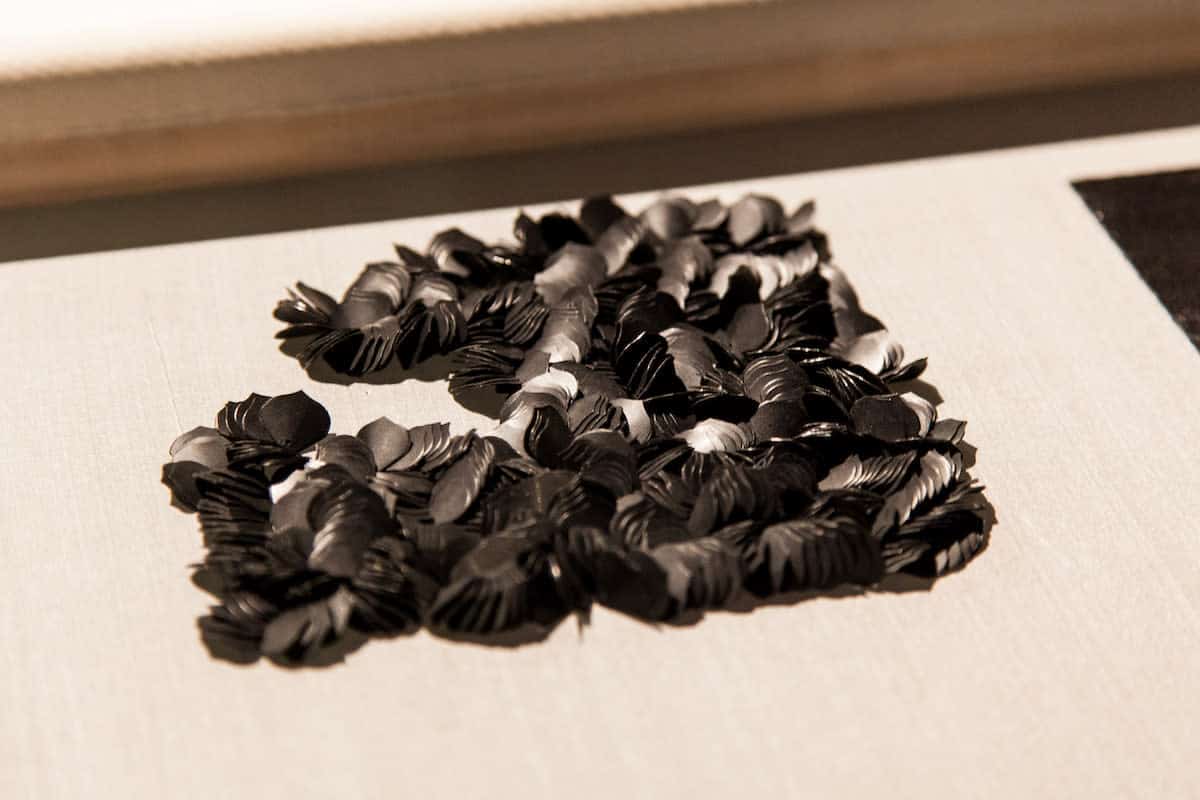
Neben den großen Ausstellungen umfasst das Festival auch eine Reihe von kleineren Installationen in der ganzen Stadt.
MINI Home Urban Home
Zuhause Urban Home hebt die kreative Nutzung von Raum hervor. Der vom Madrider Architekturbüro MYYC entworfene Raum wird in einen Wohnraum für Künstler/innen umgewandelt, die dort wohnen. Das Haus funktioniert wie ein kleines Haus, in dem Sofas, Stühle, Tische und Betten verstaut sind, bis sie gebraucht werden. Da alles seinen Platz hat und alles an seinem Platz ist, passt das Haus perfekt in die aktuelle Minimalismus-Bewegung.
Als ich die Treppe hinaufkletterte, um die zweite Etage zu erkunden (eine kleine Herausforderung für meine kleine Statur), fühlte ich mich ein bisschen wie ein Kind, das ein Traum-Baumhaus erkundet, vom einfachen Holz bis zur Hängematte in Bettgröße. Das Haus strahlte ein Gefühl der Ruhe aus, und ich könnte mir fast vorstellen, dort einzuziehen, wenn da nicht ein Element wäre: ein funktionierendes Badezimmer.
Der Garten ist ein zentrales Element, das die Natur selbst in den kleinsten, urbansten Raum einlädt. Ich verspürte den Drang, in der gemütlichen Grünanlage zu bleiben und mich in ein Buch zu vertiefen, das zwar Teil der Stadt ist, aber nicht zu ihr gehört.
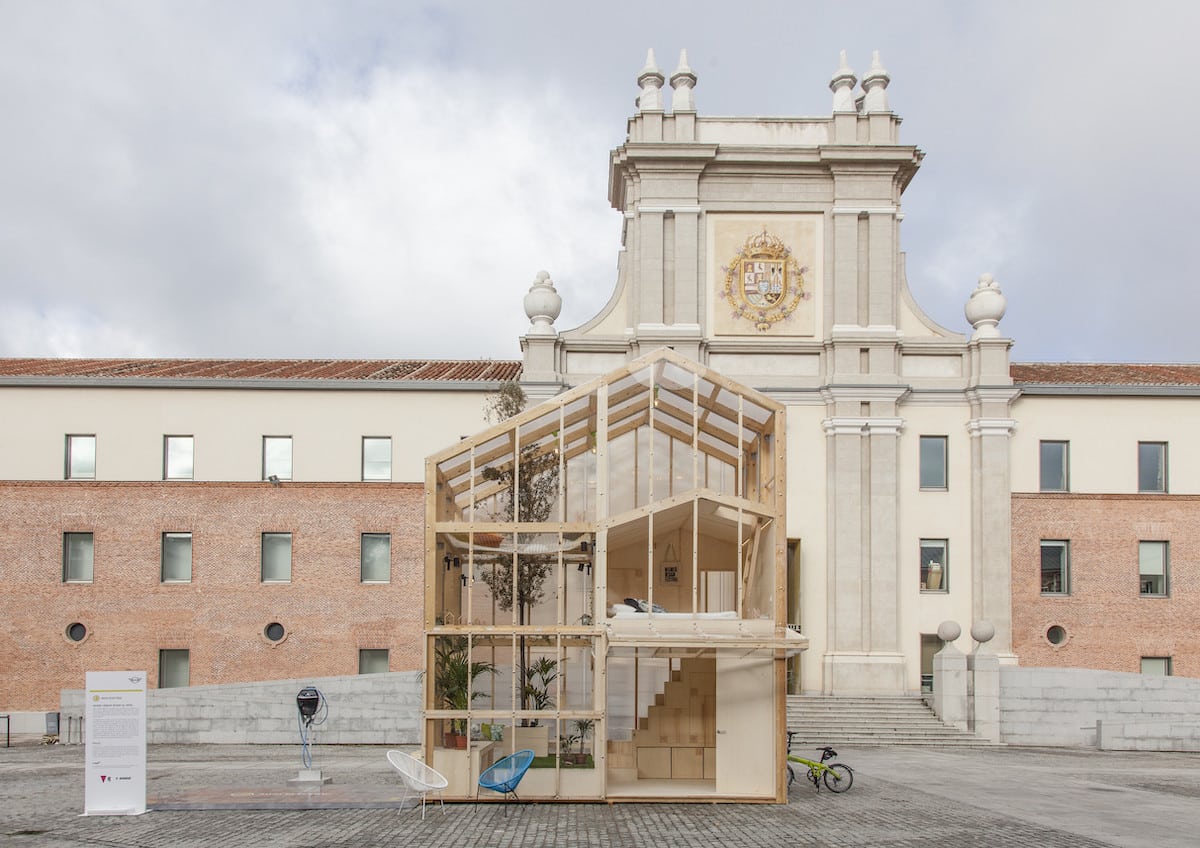
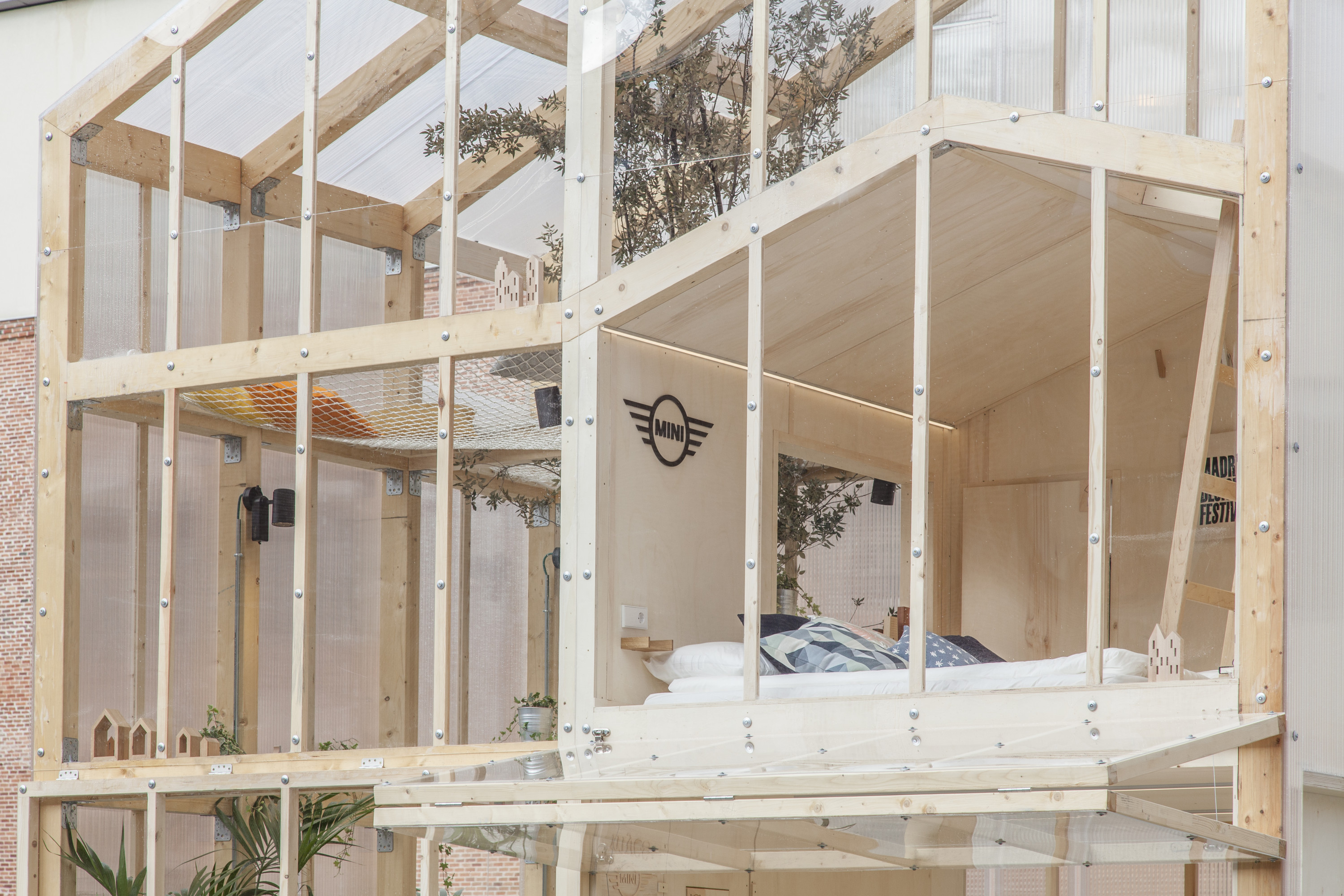
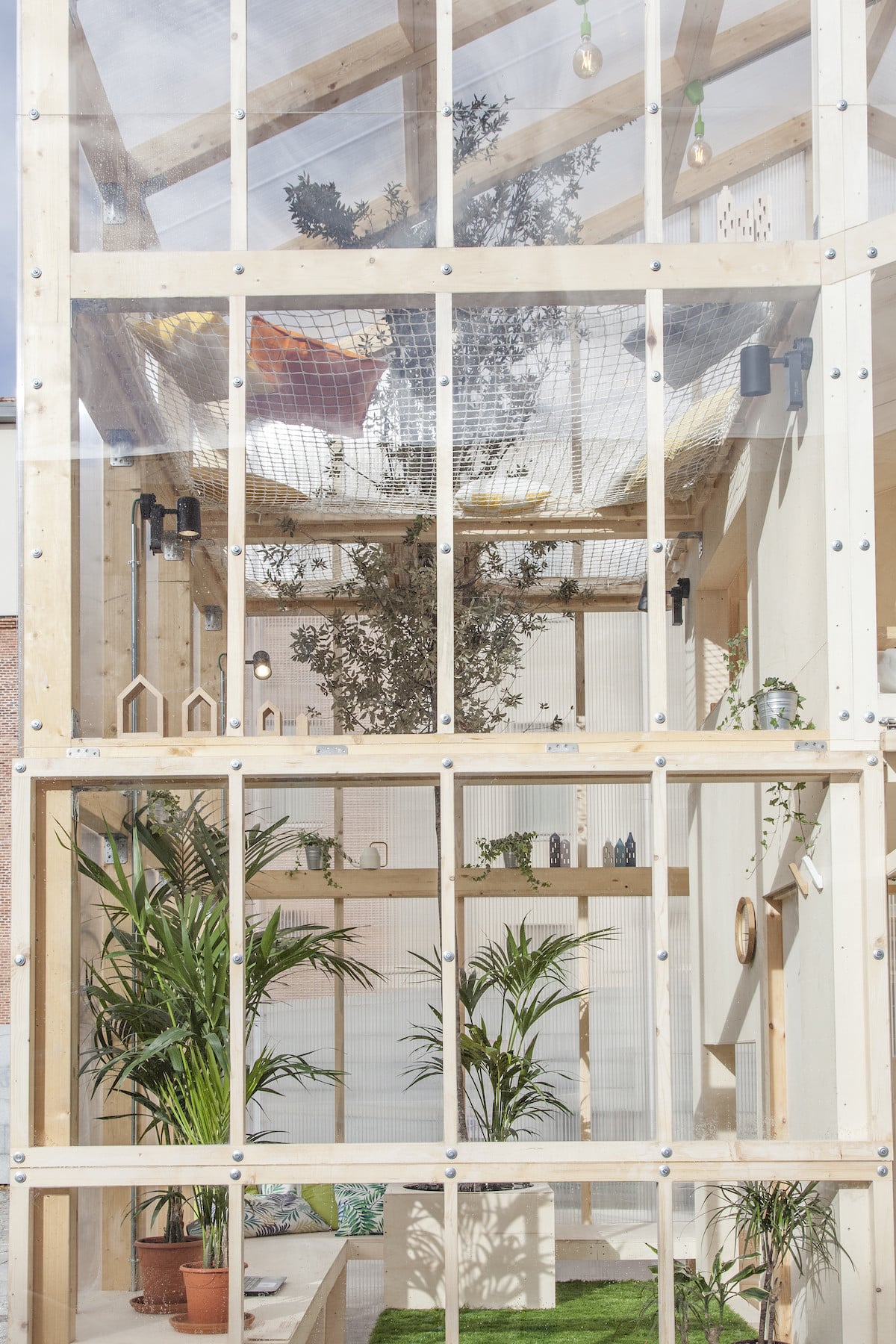
PET Lampe Pikul bei Zara Home
Die PET-Lampe Projekt wurde von dem Designer Alvaro Catalán de Ocón im Jahr 2011 als Alternative zum Recycling, um das wachsende Problem des Plastikmülls in den Ozeanen anzugehen.
Das Projekt verbindet Kunst und Aktivismus, indem es Einweg-Plastikflaschen (die normalerweise für Wasser, Limonade, Saft usw. verwendet werden) durch traditionelle Webtechniken aus Chile, Kolumbien, Äthiopien, Australien und Japan wiederverwendet. Die Flaschen werden in handgefertigte Lampen verwandelt und der Erlös aus dem Verkauf geht an die Kunsthandwerker vor Ort.
Die Frage nach der Zukunft des Designs und seinem Einfluss auf die Welt ist ein wiederkehrendes Thema des Festivals, aber dieses Projekt scheint besonders geeignet zu sein, Veränderungen zu bewirken. Bei Design geht es um mehr als nur Form und Funktion, und obwohl die Lampen selbst schön sind, existieren sie nur als Teil eines größeren wirtschaftlichen und ökologischen Ökosystems - so wie das Design selbst.
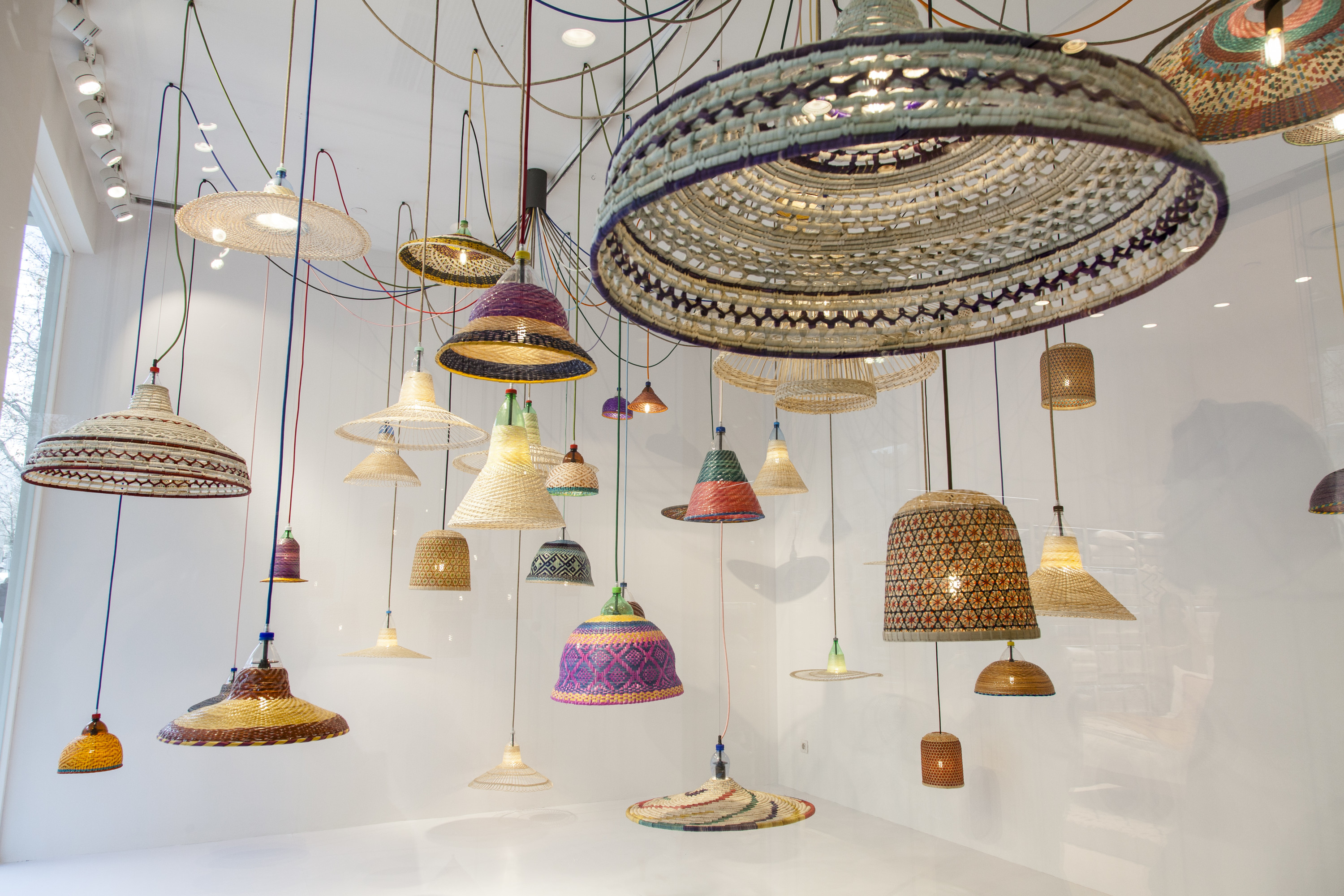
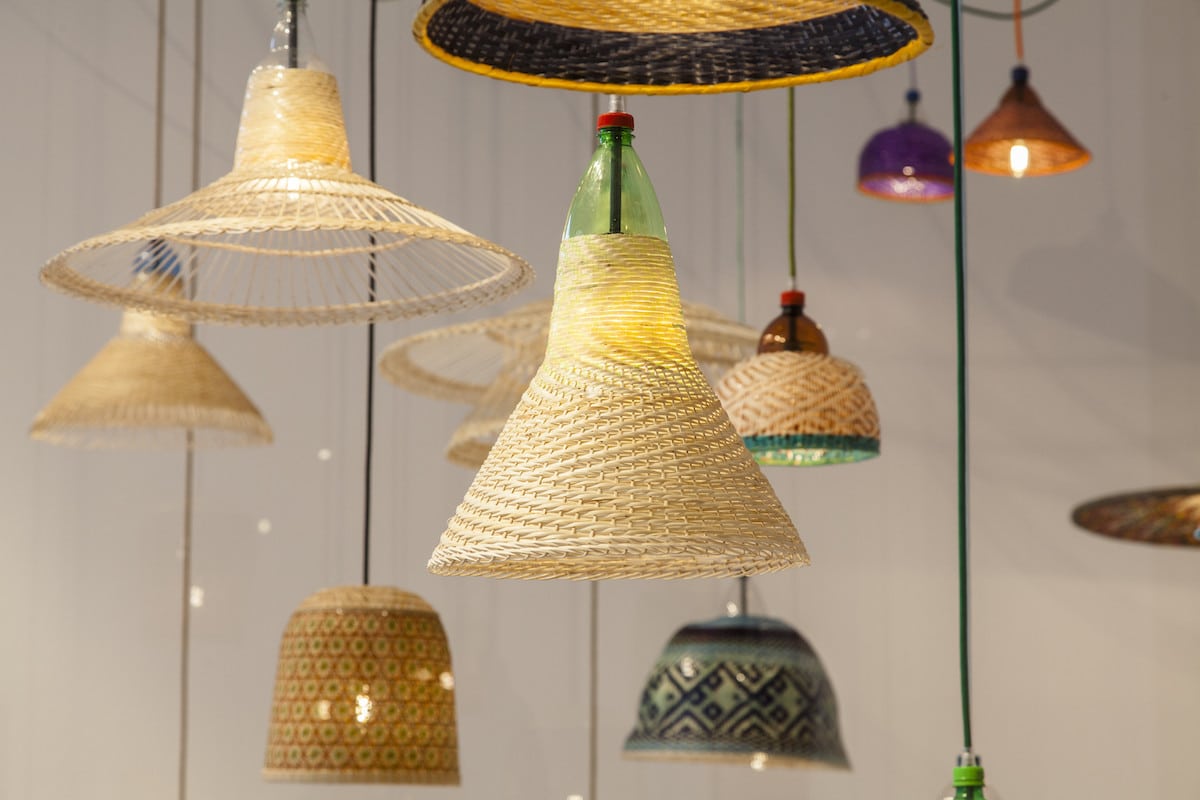
Um die vollständige Liste der Ausstellungen des diesjährigen Madrid Design Festivals zu sehen und mehr über die vorgestellten Designer und Studios zu erfahren, besuche die Website des Festivals.
Willst du mehr Kunst und Design? Lies weiter:
Jan van der Lande von Kikkerland feiert 25 Jahre Design-Erfolg
5 Galerien, die Barcelonas neue zeitgenössische Identität prägen
Hier sind die 30 Design-Apps, die wir im Moment lieben
